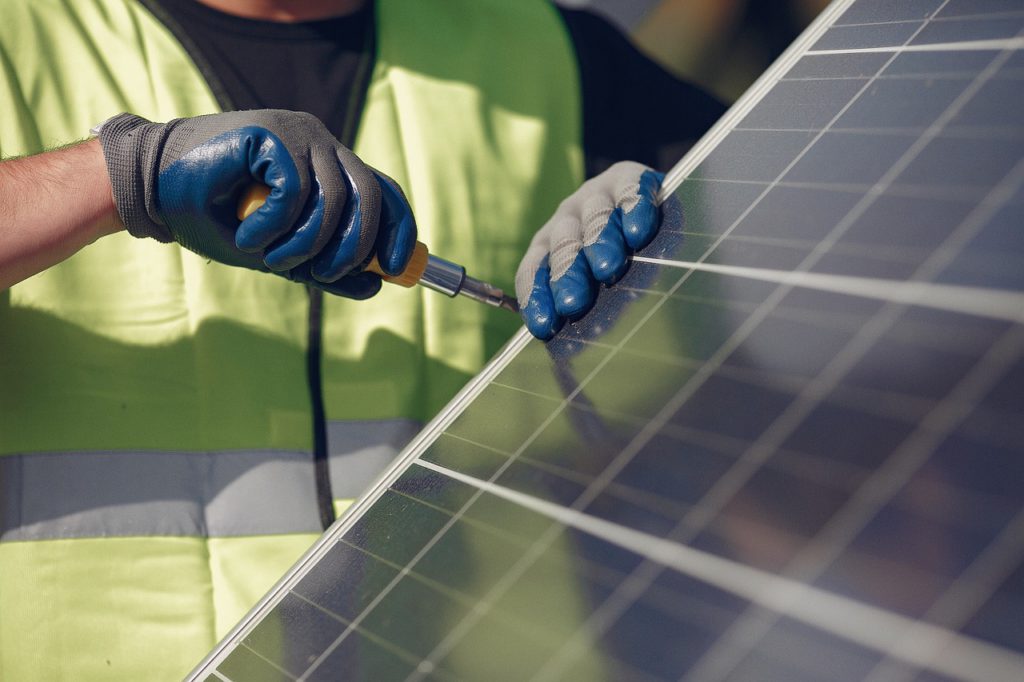Singapore’s push towards sustainable energy contributes to the rise for solar power and green businesses. What does this mean for foreign talent eyeing to migrate to Singapore?
Green Economy: The Push For Sustainability in Singapore
As a small island nation, Singapore is naturally resource-scarce so its recent push for sustainability is apt. Most of Singapore’s resources are imported from neighbors such as Malaysia—but, politically and practically, this is not sustainable. The island therefore seeks alternative energy resources to meet its growth needs and establish itself as innovative.
Alternative Energy: Which Ones Are Viable?
Presently, wind, hydroelectricity and solar are the most popular renewable sources. However, not all of them are viable in Singapore.
In the case of wind energy, commercial wind turbines require a wind speed of 4.5m/s to function, whereas Singapore’s average wind speed falls short at a measly 2m/s, less than half of the required speed. The nation’s lack of a fast-flowing river system has made hydroelectric power non-viable.
Solar power is, therefore, the only viable choice for an alternative energy source in Singapore—one of the most solar-dense nations on Earth. Singapore boasts an incredible annual solar radiation of about 1,580 kWh/m2, making solar a sustainable renewable energy source.
Solar Power, the Only Way Forward?
Singapore’s small landmass poses challenges to solar adoption. Solar energy is generated through solar panels, which take up lots of space. With its mostly built-up environment, Singapore lacks open space to establish traditional solar farms.
Presently, Singapore has responded to this issue by reinventing spaces that are already available to it. One example would be the Housing and Development Board’s (HDB) initiative to install solar panels on the rooftops of HDB buildings. This project began in 2015 with the goal of providing 540MWp of solar-powered capacity by 2030, allowing HDB to power 95,000 four-room flats solely on solar power.
According to the Energy Market Authority, using solar energy to supplement Singapore’s energy needs can reduce the nation’s peak demand for electricity, leading to lower overall costs for corporations and their people. Solar energy has thus become a key pillar of Singapore’s 2025 goal to switch to solar as a main source of energy. Dr Thomas Reindl, CEO of the Solar Energy Research Institute of Singapore (SERIS), admitted that the nation’s 2025 goal is “very ambitious”: to enable rapid adoption, Singapore needs more experienced professionals in the solar industry—most of whom are based abroad.
Given Singapore’s shift towards solar energy as its main energy source, alternative energy professionals are needed to:
- Provide expertise and experience with solar energy systems: the ambitiousness of Singapore’s goals necessitate professionals with solar expertise and experience, as they have experience innovating cost and space-effective solutions and deploying solar solutions rapidly.
- Diversify the Solar Energy Sector in Singapore through private firms: adopting solar energy as an energy source requires high upfront costs for both grid modernisation and the space required. Thus, private firms that are interested in offering their solar energy services or operating solar energy farms heavily reduce costs for the nation in its shift in energy sources. In turn, these firms benefit from being the first in a future fundamental industry in Singapore.
Importing Energy: Where is Singapore Now?
Despite Singapore’s attempts to be more self-sufficient by incorporating alternative energy sources, the nation still imports most of its energy from foreign nations, including renewables. The EMA has announced a deal with Cambodia’s Royal Group Power Company in 2022, allowing Singapore to import 1.4 gigawatts of electricity from renewable sources.
Given these initiatives, foreign renewable energy professionals are also required to:
- Forge new bonds with renewable energy companies from neighbouring nations: By strengthening relations with renewable energy firms, Singapore can tap into the renewable energy sources that its neighbouring nations have. These renewable energy companies can also leverage the demand for renewable energy in Singapore, opening up new business opportunities and consumer bases. In order to achieve this, Singapore needs business leaders with relevant connections to help link the state up with future private partners.
- Help set up pro-renewables infrastructure in Singapore: Singapore needs foreign professionals and partners with relevant policymaking experience to advise on the establishment of renewable energy infrastructure. Foreign firms and business leaders bring with them resources and innovative capabilities, which can be used to create more renewable energy solutions, developing existing infrastructure even further.
What Pathways Can I Take into Singapore as an Energy Professional?
The Singapore Government has launched passes and policies to attract energy professionals, such as:
- Employment Pass: the most popular pathway for energy professionals relocating to Singapore, mostly aimed at energy PMETs (professionals, managers, executives and technical experts).
- ONE Pass: targeted at the top 1% of professionals, including top researchers and leaders in energy transformation, renewables and decarbonisation.
- Entrepass: targeted at entrepreneurs incorporating businesses with high-tech and disruptive potential, including alternative energy research and development.
- GIP: targeted at ultra high net worth individuals (UHNWs) interested in investing in Singaporean companies that are in the disruptive energy and sustainability industries.
Energy professionals interested in working in Singapore can enter the country through any of the abovementioned pathways.
Opportunities in Singapore for Sustainability Professionals
Singapore’s rapid shift towards renewable energy presents an opportunity for the growth of a new industry within the nation. As renewable energy becomes integral to Singapore’s power needs, more opportunities for foreign professionals to fill the gaps in the nation’s approach are created. The renewable energy industry thus presents a wealth of opportunities for Singapore and experts in the field alike.







